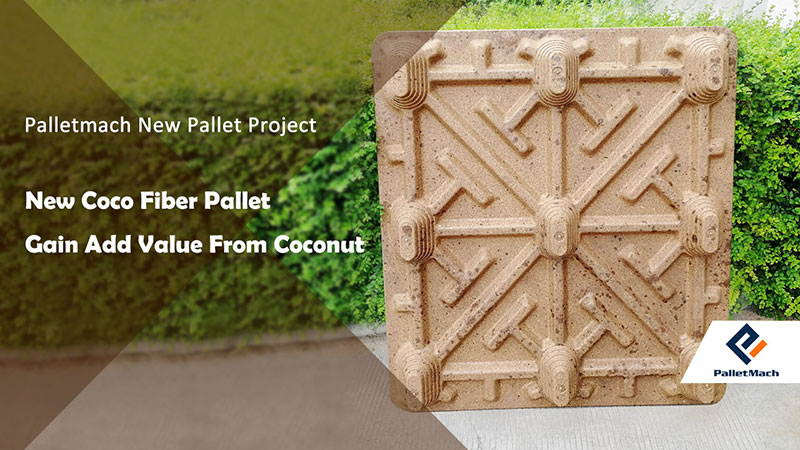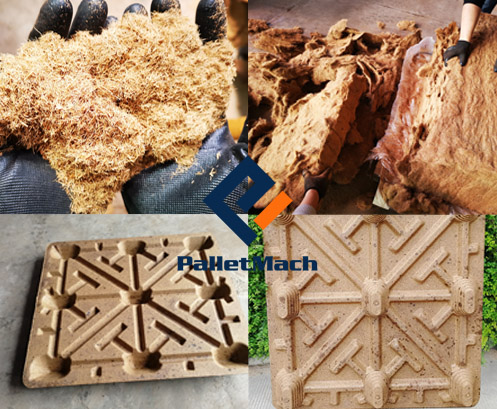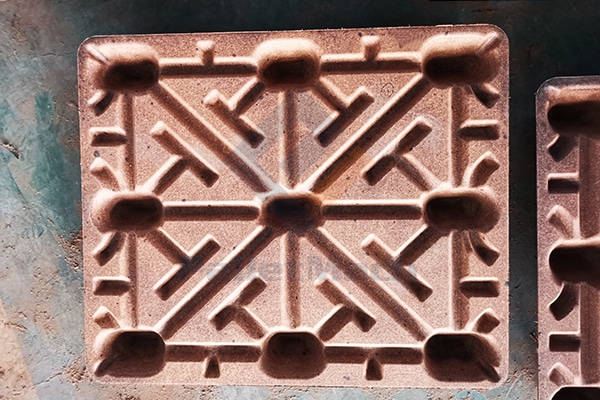Coconut fiber, also known as coir, has long been utilized in various traditional applications due to its durability and natural abundance. Historically, coconut fiber has been processed and used in products such as ropes, mats, brushes, and even as a soil amendment in gardening. However, recent advancements in technology have unlocked a new potential for coconut fiber: the production of compressed pallets through hot pressing technology.

Traditional Uses of Coconut Fiber
Coconut fiber is extracted from the husk of coconuts, a byproduct of the coconut industry. This natural fiber has been valued for centuries for its strength, resilience, and versatility. Traditional treatments and applications of coconut fiber include: rope making, mat and brush production, horticulture.
The Advent of Hot Pressing Technology
Hot pressing technology of the wood pallet making machine has emerged as a groundbreaking method for creating high-strength, eco-friendly products from natural fibers. This process involves subjecting the fibers to high heat and pressure, transforming them into dense, durable materials. When applied to coconut fiber, hot pressing technology can produce compressed pallets with numerous benefits.

Production of Compressed Pallets Using Coconut Fiber
The process of manufacturing compressed pallets from coconut fiber involves several steps:
- Fiber Collection and Preparation: Coconut husks are collected, and the fibers are extracted and cleaned to remove impurities.
- Blending and Mixing: The coconut fibers are mixed with a binding agent, often eco-friendly resins, to enhance the structural integrity of the final product.
- Hot Pressing: The fiber-resin mixture is placed in the molds of pallet making machine and subjected to high temperature and pressure. This process compacts the fibers into a solid, cohesive structure, forming the compressed pallet.
- Cooling and Finishing: After pressing, the pallets are cooled and any necessary finishing touches, such as trimming or coating, are applied.
Advantages of Coconut Fiber Compressed Pallets

The adoption of coconut fiber compressed pallets offers a range of benefits, particularly in terms of sustainability and performance:
- Eco-Friendly: Utilizing coconut fiber, a renewable resource and agricultural byproduct, significantly reduces the environmental impact compared to traditional wooden or plastic pallets.
- Durability: Compressed pallets made from coconut fiber are robust and capable of withstanding heavy loads and rough handling, making them suitable for various logistical applications.
- Lightweight: These pallets are lighter than traditional wooden pallets, reducing shipping costs and carbon emissions during transportation.
- Biodegradability: At the end of their life cycle, coconut fiber pallets can decompose naturally, minimizing waste and contributing to a circular economy.
The introduction of compressed pallets made from coconut fiber is poised to revolutionize the logistics and transportation industries. Companies are increasingly adopting this sustainable alternative, driven by the dual benefits of cost savings and environmental responsibility. As awareness of the advantages grows, the demand for coconut fiber compressed pallets is expected to increase, further promoting the use of renewable materials in industrial applications.
